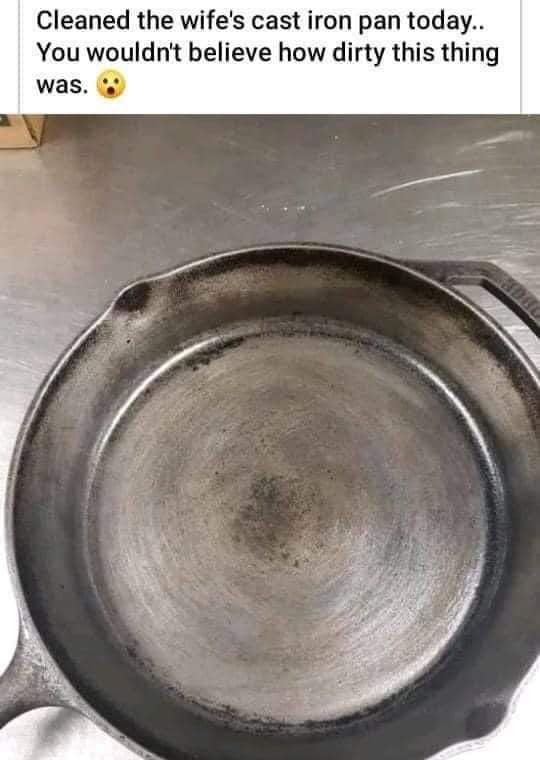this post was submitted on 13 Apr 2024
703 points (98.0% liked)
Memes
45595 readers
1232 users here now
Rules:
- Be civil and nice.
- Try not to excessively repost, as a rule of thumb, wait at least 2 months to do it if you have to.
founded 5 years ago
MODERATORS
you are viewing a single comment's thread
view the rest of the comments
view the rest of the comments

I keep reading the word seasoning, and for non native speakers this is hard. What are you all meaning? You put some garlic, salt and pepper on the pan and let it be?
English is dumb. We got the term "seasoned" to mean like a veteran fighter, something aging properly and using salt and spice from the French "assaisoner" which means "to ripen / to improve with time" which we expanded upon by being like "when things become tastier" which is how we started applying it to using spices and salt...
In this case it means sort of speed running getting the oil sheen a cast iron cooking implement used to naturally get by just using it over and over when cooking over wood or peat hence "ripening" the pan. Way back in the day in England and France they didn't really use soap for dishes. You washed them with water and left them outside in UV light to sterilize them so all iron cooking things tended to naturally develop that nice carbon coat. Time and use made them better hence "seasoned".
Seasoning in this specific context means the residue of the food oil which forms a surface coating when heated up to a certain temperature. It protects the surface from rusting.
It does protect from rust somewhat(water can still cause rust if left on it) but the big deal is it makes the cookware non-stick without Teflon.
It's more like like a seasoned veteran, not cooking seasoning.
You aren't throwing garlic on the pan and then putting it in the cupboard. You build up layers of polymerized oil on the pan as you cook on it.
Oil is placed on the pan and then it is heated to form a non-stick coating. This layer can have small holes in it, so the process is repeated many times. The holes do not line up, which makes the path for water to get through much longer or blocks it. This means water can not easily make it through all of the layers. That also means any water that gets in can't easily get out, and it can cause rust to form if it makes it through the coating and is left on there.
In this context, it means to coat the cast iron with oil and/or fat and heat it until the oils polymerize as a thin film stuck to the surface of the pan. This prevents the cast iron from rusting and presents a non-stick surface. It's honestly more like varnishing the pan than "seasoning" it.